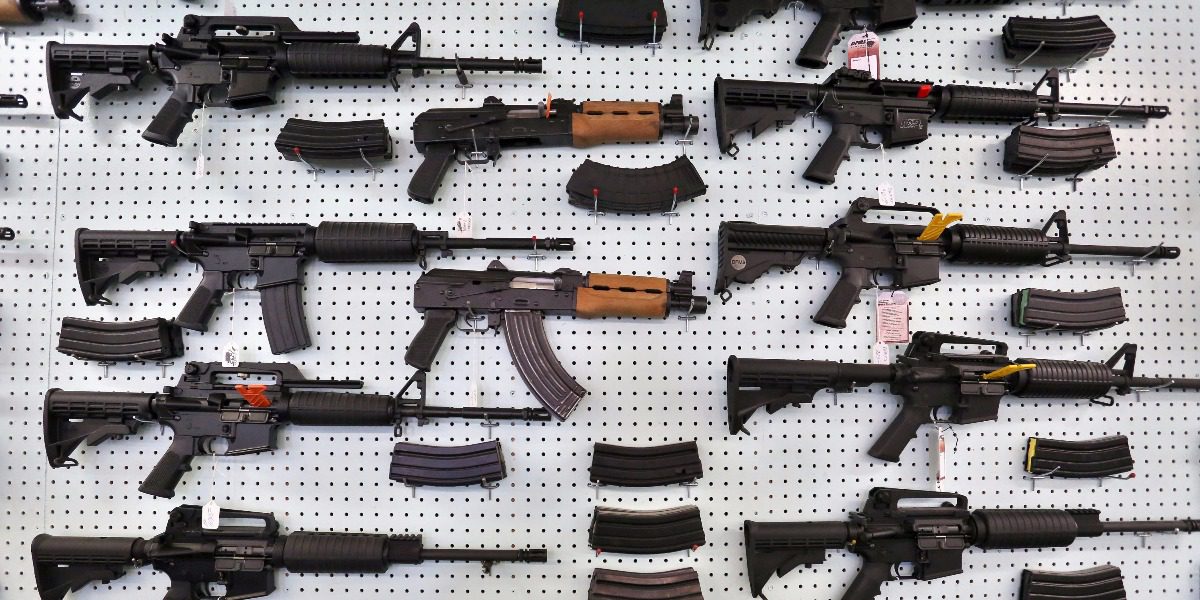Within hours of a mass shooting that left 26 people dead at First Baptist Church in Sutherland Springs, Texas, on Sunday, Daily Beast and Los Angeles Times contributor Jamil Smith took to Twitter to criticize the lax American gun control policies that he apparently believed made the horrific massacre possible: “Take guns away from men who abuse women and children. That should be the baseline for a civil society. Alas,” he wrote.
Videos by Rare
Take guns away from men who abuse women and children. That should be the baseline for a civil society. Alas. https://t.co/3eQyz36Pij
— Jamil Smith جميل كريم (@JamilSmith) November 6, 2017
RELATED: The man who stopped the Texas church shooter said he couldn’t have done so without his AR-15
Smith was referring to the criminal charges to which Devin P. Kelley, the shooter, pleaded guilty in 2012. After serving 12 months confinement for beating his wife and fracturing his baby step-son’s skull, Kelley was given bad conduct discharge from the Air Force and returned home. Over the next few years, the New York Times reported, he was accused several times of domestic abuse and sexual assault, pleaded guilty to a misdemeanor charge of animal cruelty and became aggressively anti-Christian.
Smith is right. This is exactly the kind of person who shouldn’t be allowed to have a gun.
There’s only one problem: under current laws, Kelley should’ve been legally barred from buying one in the first place.
Under the Lautenberg Amendment of 1996, anyone convicted of a felony or misdemeanor crime of domestic violence is prohibited from purchasing or possessing a firearm. Furthermore, Kelley had been convicted of a felony punishable by over one year in prison, the number one reason would-be gun buyers are rejected.
I have worked at a gun store and can say from firsthand experience that either of these factors would have resulted in the immediate failure of his background check. If he didn’t disclose his conviction by marking the proper boxes on the federal firearm purchase form, then he committed perjury each time he did so, but this lie would not have prevented the FBI’s National Instant Criminal Background Check System (NICS) from identifying him as an abuser and a felon. A 2016 Justice Department audit showed that the NICS correctly rejected applicants barred from purchasing firearms in 99.8 percent of cases.
Why, then, was Kelley able to buy four guns in four separate transactions over the course of four years?
Unfortunately, the NICS, like all databases, is only as good as data programmed into it, and in this case, the Air Force failed to enter Kelley’s conviction into the database of the National Criminal Information Center, the electronic index on which the NICS bases its decisions.
I’d love to say that this was a fluke, a one-in-a-million clerical error that allowed a criminal psychopath to slip through the cracks but can be reasonably expected never to happen again. A quick look at the history of recent mass shootings, though, reveals that this apparent anomaly is actually anything but.
According to the New York Times, this is at least the third time in just over three years that human error has prevented the system from keeping a gun out of a future mass shooter’s hands.
Dylann Roof, who killed nine people at Emmanuel African Methodist Episcopal Church in Charleston, S.C. in July 2015, had been charged with misdemeanor drug possession a few months earlier. After the shooting, then-FBI director James Comey explained that while the “charge alone is not enough to deny proceeding with the transaction,” it could be enough to “show the person to be an unlawful drug user or addict,” which would result in a failed background check. Roof passed his background check because a jail clerk made a data entry error that prevented an FBI examiner from locating Roof’s arrest record.
RELATED: Just one failure gave Sutherland Springs shooter Devin Kelley the ability to buy guns
In October of 2014, Jaylen Ray Fryberg used his father’s handgun to kill four of his classmates in a high school cafeteria in Marysville, Wash. His father was the subject of a permanent domestic violence protection order, grounds for background check failure, but was allowed to purchase the gun because the protection order was never entered into the federal database.
There is certainly a debate to be had about gun control, but in these cases, human error allowed three people — a felon, an accused drug user and a domestic abuser — to purchase firearms that existing laws should have prevented them from buying.
The errors made with Kelley, Roof and Fryberg came to the attention of law enforcement because they committed mass shootings, but how many other illegal gun owners sailed right through their background checks and are walking around armed right now?
If law enforcement can’t effectively apply the gun laws already on the books, there’s no reason to think they’d do any better with stricter gun control legislation.



